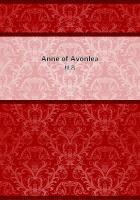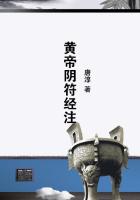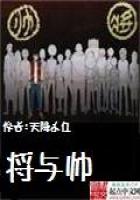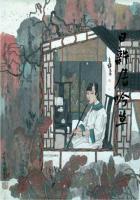They had spent the morning together before this second performance of Parsifal that closed their series, in the woods above the theatre, and Michael, no longer blurting out his speeches, but speaking in the quiet, orderly manner in which he thought, discussed his plans.
"I shall come back to London with you after Munich," he said, "and settle down to study. I do know a certain amount about harmony already; I have been mugging it up for the last three years. But Imust do something as well as learn something, and, as I told you, I'm going to take up the piano seriously."Falbe was not attending particularly.
"A fine instrument, the piano," he remarked. "There is certainly something to be done with a piano, if you know how to do it. I can strum a bit myself. Some keys are harder than others--the black notes.""Yes; what of the black notes?" asked Michael.
"Oh! they're black. The rest are white. I beg your pardon!"Michael laughed.
"When you have finished drivelling," he said, "you might let me know.""I have finished drivelling, Michael. I was thinking about something else.""Not really?"
"Really."
"Then it was impolite of you, but you haven't any manners. I was talking about my career. I want to do something, and these large hands are really rather nimble. But I must be taught. The question is whether you will teach me."Falbe hesitated.
"I can't tell you," he said, "till I have heard you play. It's like this: I can't teach you to play unless you know how, and Ican't tell if you know how until I have heard you. If you have got that particular sort of temperament that can put itself into the notes out of the ends of your fingers, I can teach you, and I will.
But if you haven't, I shall feel bound to advise you to try the Jew's harp, and see if you can get it out of your teeth. I'm not mocking you; I fancy you know that. But some people, however keenly and rightly they feel, cannot bring their feelings out through their fingers. Others can; it is a special gift. If you haven't got it, I can't teach you anything, and there is no use in wasting your time and mine. You can teach yourself to be frightfully nimble with your fingers, and all the people who don't know will say: 'How divinely Lord Comber plays! That sweet thing;is it Brahms or Mendelssohn?' But I can't really help you towards that; you can do that for yourself. But if you've got the other, Ican and will teach you all that you really know already.""Go on!" said Michael.
"That's just the devil with the piano," said Falbe. "It's the easiest instrument of all to make a show on, and it is the rarest sort of person who can play on it. That's why, all those years, Ihave hated giving lessons. If one has to, as I have had to, one must take any awful miss with a pigtail, and make a sham pianist of her. One can always do that. But it would be waste of time for you and me; you wouldn't want to be made a sham pianist, and simply I wouldn't make you one."Michael turned round.
"Good Lord!" he said, "the suspense is worse than I can bear.
Isn't there a piano in your room? Can't we go down there, and have it over?""Yes, if you wish. I can tell at once if you are capable of playing--at least, whether I think you are capable of playing--whether I can teach you."
"But I haven't touched a piano for a week," said Michael.
"It doesn't matter whether you've touched a piano for a year."Michael had not been prevented by the economy that made him travel second-class from engaging a carriage by the day at Baireuth, since that clearly was worth while, and they found it waiting for them by the theatre. There was still time to drive to Falbe's lodging and get through this crucial ordeal before the opera, and they went straight there. A very venerable instrument, which Falbe had not yet opened, stood against the wall, and he struck a few notes on it.
"Completely out of tune," he said; "but that doesn't matter. Now then!""But what am I to play?" asked Michael.
"Anything you like."
He sat down at the far end of the room, put his long legs up on to another chair and waited. Michael sent a despairing glance at that gay face, suddenly grown grim, and took his seat. He felt a paralysing conviction that Falbe's judgment, whatever that might turn out to be, would be right, and the knowledge turned his fingers stiff. From the few notes that Falbe had struck he guessed on what sort of instrument his ordeal was to take place, and yet he knew that Falbe himself would have been able to convey to him the sense that he could play, though the piano was all out of tune, and there might be dumb, disconcerting notes in it. There was justice in Falbe's dictum about the temperament that lay behind the player, which would assert itself through any faultiness of instrument, and through, so he suspected, any faultiness of execution.
He struck a chord, and heard it jangle dissonantly.
"Oh, it's not fair," he said.
"Get on!" said Falbe.
In spite of Germany there occurred to Michael a Chopin prelude, at which he had worked a little during the last two months in London.
The notes he knew perfectly; he had believed also that he had found a certain conception of it as a whole, so that he could make something coherent out of it, not merely adding bar to correct bar.
And he began the soft repetition of chord-quavers with which it opened.
Then after stumbling wretchedly through two lines of it, he suddenly forgot himself and Falbe, and the squealing unresponsive notes. He heard them no more, absorbed in the knowledge of what he meant by them, of the mood which they produced in him. His great, ungainly hands had all the gentleness and self-control that strength gives, and the finger-filling chords were as light and as fine as the settling of some poised bird on a bough. In the last few lines of the prelude a deep bass note had to be struck at the beginning of each bar; this Michael found was completely dumb, but so clear and vivid was the effect of it in his mind that he scarcely noticed that it returned no answer to his finger. . . .
At the end he sat without moving, his hands dropped on to his knees.












